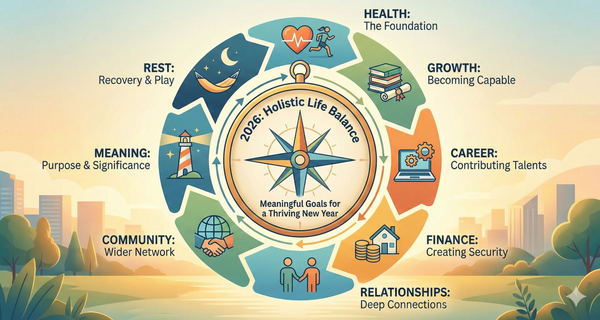What Makes Lifelong Friendships Last
What Makes Lifelong Friendships Last
In the grand narrative of our lives, friendships are the beautiful, intricate subplots that provide meaning, joy, and support. While we meet many people along the way, only a select few relationships stand the test of time, evolving into what we cherish as lifelong friendships. These are the bonds that remain unshaken by distance, time, or the inevitable changes that life throws our way. But what is the secret behind these enduring connections? It's not a matter of luck, but rather a combination of intentional effort, mutual respect, and a deep, unspoken understanding. This article delves into the core components that make lifelong friendships last, offering insights into how to nurture these invaluable relationships.
The Foundation of Trust and Honesty
At the heart of every lasting friendship lies the bedrock of trust and honesty. Without these, a relationship is built on sand, susceptible to washing away with the first storm. Trust is the implicit confidence that a friend will be there for you, will act in your best interest, and will be a reliable confidant. Honesty, in turn, is the glue that holds this trust together, ensuring that the relationship is authentic and transparent.
Building Trust Over Time
Trust isn't instantaneous; it's painstakingly built over months and years through a consistent pattern of trustworthy behavior. It's in the small things: keeping promises, showing up when you say you will, and being a dependable source of support. Every act of reliability adds another layer to the foundation of trust, making the friendship more resilient. Lifelong friends have a rich history of dependability, which allows them to be vulnerable with each other without fear of judgment or betrayal. This shared history of trust creates a safe space for both individuals to be their authentic selves.
The Role of Radical Candor in Friendship
Honesty is more than just telling the truth; it's about being willing to have the tough conversations. This concept, often referred to as "radical candor," involves caring personally while also challenging directly. A lifelong friend won't just tell you what you want to hear; they'll tell you what you need to hear, even if it's uncomfortable. This level of honesty fosters a profound sense of security and respect. It shows that your friend is invested in your growth and well-being, and it’s this commitment to truth that forges an unbreakable bond.
Navigating Life's Changes Together
Life is a journey of constant evolution, and one of the biggest tests of a friendship is its ability to adapt to change. Careers, romantic relationships, and personal growth can alter the dynamics of any relationship. Lifelong friendships, however, have a unique elasticity that allows them to stretch and grow alongside the individuals within them.
Adapting to Different Life Stages
From the carefree days of youth to the responsibilities of adulthood, our priorities and schedules are in a constant state of flux. A friendship that lasts is one that can navigate these shifts. It means understanding that a friend with a new baby might not be available for spontaneous hangouts, or that a friend climbing the corporate ladder might have less free time. Instead of growing apart, lifelong friends find new ways to connect, whether it's through scheduled video calls, quick check-in texts, or cherishing the quality of the time they do get to spend together. The friendship's form may change, but its essence remains the same.
Supporting Each Other Through Thick and Thin
The true measure of a friendship is not how it fares during the good times, but how it holds up during the bad. Lifelong friends are the ones who sit with you in the darkness, who celebrate your victories as if they were their own, and who offer a non-judgmental shoulder to lean on. This unwavering support through life's highs and lows creates a powerful emotional anchor. Knowing you have someone in your corner, no matter what, is one of the most profound gifts a friendship can offer. This mutual commitment to being a steadfast presence solidifies the relationship, making it a vital source of strength and comfort.
The Power of Shared Experiences and Values
While differences can add spice to a friendship, a foundation of shared experiences and core values is often what gives it its longevity. These commonalities create a unique language and a shared worldview that can make a friendship feel like coming home.
Creating a Shared History
The accumulation of shared memories, inside jokes, and traditions creates a rich tapestry that is unique to each friendship. This shared history becomes a source of comfort and connection, a reminder of all that you've been through together. Whether it's reminiscing about a hilarious travel mishap or upholding a long-standing birthday tradition, these shared experiences reinforce the bond and create a sense of belonging. Lifelong friendships are, in many ways, a co-authored story of two lives intertwined.
Aligning on Core Beliefs and Values
While friends don't need to agree on everything, alignment on core values—what you believe is most important in life—is crucial. Shared values regarding integrity, kindness, ambition, or family create a deep-seated compatibility that transcends superficial interests. When your fundamental principles are in sync, it's easier to understand each other's motivations and decisions. This moral and ethical alignment fosters a level of respect and admiration that is essential for a friendship to last a lifetime.
Communication: The Lifeline of Friendship
A friendship can have all the right ingredients, but without effective communication, it will struggle to thrive. Communication is the lifeline that keeps the connection strong, allowing for the exchange of thoughts, feelings, and needs. It's the tool that helps navigate conflicts and deepen intimacy.
Mastering the Art of Listening
In a world full of noise, the act of truly listening is a rare and precious gift. Lifelong friends are often exceptional listeners. They practice active listening, which means they are fully present in the conversation, seeking to understand rather than just waiting for their turn to speak. This empathetic listening validates the other person's feelings and experiences, making them feel seen and heard. It's a skill that fosters a deep sense of emotional intimacy and is a cornerstone of supportive friendships.
Conflict Resolution and Forgiveness
No relationship is without its disagreements. The difference between a friendship that lasts and one that doesn't is often how it handles conflict. Lifelong friends are not afraid to address issues head-on, but they do so with respect and a commitment to finding a resolution. They understand that a minor conflict doesn't have to be a major catastrophe. Furthermore, they practice forgiveness. Holding onto grudges is toxic to any relationship. The ability to forgive and move forward is a testament to the strength of the bond and the desire to preserve it.
Conclusion: Nurturing Friendships for a Lifetime
Lifelong friendships are not a passive occurrence; they are a conscious choice and a continuous effort. They require the same level of care and attention as any other significant relationship in our lives. By building a foundation of trust and honesty, adapting to life's changes, cherishing shared experiences and values, and mastering the art of communication, we can nurture our friendships, allowing them to flourish for a lifetime. These are the relationships that enrich our existence, providing a sense of continuity and belonging in an ever-changing world. In the end, a lifelong friendship is one of life's greatest masterpieces, a beautiful testament to the enduring power of human connection.




